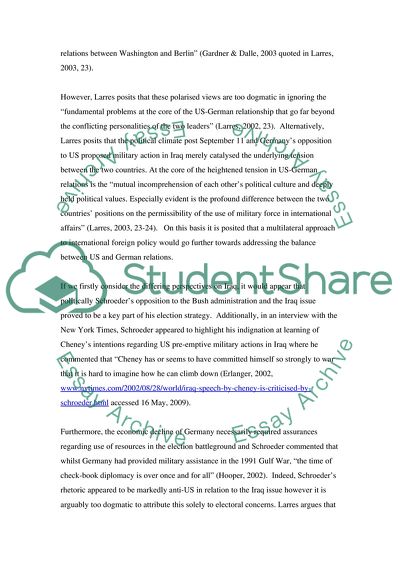Cite this document
(The US-German Relations Case Study Example | Topics and Well Written Essays - 2500 words, n.d.)
The US-German Relations Case Study Example | Topics and Well Written Essays - 2500 words. Retrieved from https://studentshare.org/politics/1724179-us-german-relations
The US-German Relations Case Study Example | Topics and Well Written Essays - 2500 words. Retrieved from https://studentshare.org/politics/1724179-us-german-relations
(The US-German Relations Case Study Example | Topics and Well Written Essays - 2500 Words)
The US-German Relations Case Study Example | Topics and Well Written Essays - 2500 Words. https://studentshare.org/politics/1724179-us-german-relations.
The US-German Relations Case Study Example | Topics and Well Written Essays - 2500 Words. https://studentshare.org/politics/1724179-us-german-relations.
“The US-German Relations Case Study Example | Topics and Well Written Essays - 2500 Words”. https://studentshare.org/politics/1724179-us-german-relations.


